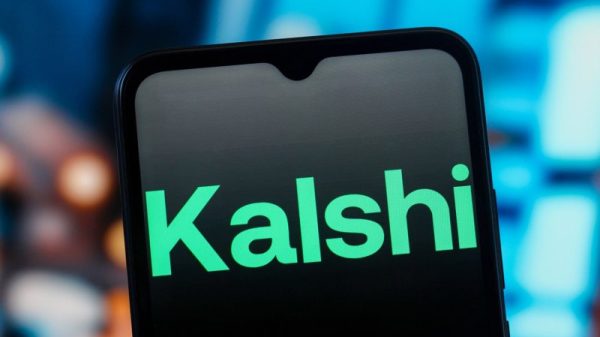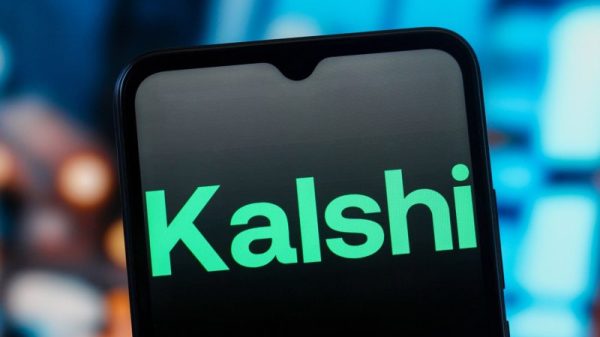Eight years ago, Donald Trump launched his presidential campaign by falsely claiming that immigrants crossing the border from Mexico were dangerous criminals. His assertions were broadly rebutted and frequently mocked; after all, it seemed unlikely that he would be the nominee or that his message would resonate with Republicans. Both were incorrect: Trump’s rhetoric was embraced by primary voters, and he won the nomination.
Other Republicans, seeking to appeal to the same base, began to embrace similar language, disparaging immigrants as dangerous and immigration as something to be curtailed. This became much easier with the emergence of fentanyl and the accompanying rise in overdose deaths. Fentanyl is often trafficked into the United States across the border, albeit through border checkpoints and often in the possession of U.S. citizens. But now, at least, one could point to a clear danger — the deadly synthetic opioid — and link it to cross-border activity. A new Republican line of argument was born.
Few people have embraced it as lustily as Florida Gov. Ron DeSantis (R). As DeSantis’s presidential ambitions became more obvious, so did his efforts to amplify hard-line rhetoric about the border. He was among the first to pledge to deploy the military against drug cartels in Mexico and to use naval forces to interrupt the inflow of precursor chemicals sent to Mexico from China. He’s also gone further, suggesting that he would allow law enforcement or the military to shoot border-crossers believed to be carrying drugs (though again, trafficking usually involves pills hidden in motor vehicles).
This came up this week during the fourth Republican primary debate. DeSantis is a lawyer, moderator Elizabeth Vargas noted; was this shoot-to-kill order legal?
DeSantis riffed on the subject for a bit, amplifying his central rhetorical aim of making himself look tough.
“The drug cartels are invading our country and they are killing our citizens by the tens of thousands every year,” he said. He told (as he has before) a story about a toddler ingesting fentanyl from the floor of a rental apartment. “Is this acceptable in this country? I know the elites in D.C., they don’t care. They don’t care that fentanyl is ravaging your community.”
“I am not going to sit there and allow mothers to lose more kids because of fentanyl overdoses,” he added a bit later. He pledged that “there’s going to be a new sheriff in town, and these drug cartels better buckle up.”
There has been an increase in opioid overdoses in Florida, as data from the Centers for Disease Control and Prevention demonstrates. Deaths from synthetic opioids, including and largely meaning fentanyl, more than doubled from 2,121 in 2018 to 4,788 in 2020. In 2021, that figure topped 5,400; in 2022, it was more than 5,100.
This, DeSantis suggests, is the driving urgency for his tough talk on the border.
It’s interesting to consider the increase in opioid deaths in Florida, though, through the lens of another cause of premature death in the state: covid-19. If we overlap the monthly covid-19 death toll from CDC data (including, as with the opioid data, preliminary totals through September of this year), the difference in the toll exacted on his state becomes obvious.
Yet DeSantis’s rhetoric about covid is far different. He does not focus on the conduits of the coronavirus as dangerous, demanding that those infected isolate or wear masks. He doesn’t advocate for the deployment of protections early in the process, such as vaccinations. Instead, he responds to the spread of covid with a shrug, suggesting that the bad actors during the pandemic were the people attempting to contain the virus, not those spreading it. During the debate, he boasted that he “beat Fauci on covid” — that is, having rejected the recommendations of such medical experts as Anthony S. Fauci, the country’s former top infectious-disease official.
Why the difference in DeSantis’s approach? Simple. With fentanyl, he can frame his approach as targeting immigrants, China and Mexican criminals — groups unpopular with Republican primary voters. With covid, he could frame his approach around getting Floridians to do a better job containing the virus, but that means portraying primarily Republicans as the problem. So, instead, he targets bossy government officials — a group unpopular with those same Republicans.
From a political perspective, the result is the same: DeSantis gets to be the guy taking on people Republicans hate. From a public health perspective, there is also a similarity: DeSantis’s rhetoric isn’t likely to have much of an effect.
Preliminary CDC data suggest that, from January through October of this year, there were 1.4 deaths from covid-19 in Florida for every death from a synthetic opioid such as fentanyl. Fauci was defeated, indeed.





























